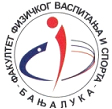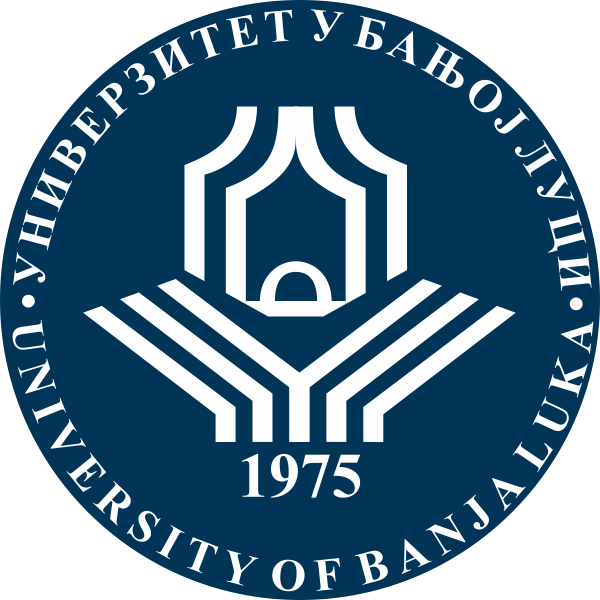SportLogia
Vol. 7, Issue 1, Jun 2011.
THE SOCIO-PROFESSIONAL STATUS OF PHYSICAL
EDUCATION TEACHERS IN PORTUGAL - A QUALITATIVE APPROACH
Ferreira António Gomes1 and Moreira José António2
1 Faculty of Psychology and Educational Sciences, Coimbra, Portugal
2 Department of Education and Distance Learning, Porto, Portugal
ORGINAL SCIENTIFIC PAPER
doi:10.5550/sgia.110701.en.001G
COBISS.BH-ID: 2100504
UDC: 371.124:796(469)
Summary FULL TEXT (.pdf) free of charge
Despite some worth mentioning initiatives, Physical Education teaching in Portugal was only unveiled and recognized at a later stage by others than the ones directly involved in it. In fact, during most of the 20th century, both the subject and the teachers were clearly considered to have a peripheral status, particularly when compared to their professional peers. Considering the changes in the last decades, we found it pertinent to analyse how these teachers perceive the status that is assigned to them by teachers of other subjects, and also by their students. For the purpose of this analysis, we used a qualitative methodology in our study focused on a group of fifteen teachers with varied degrees in Physical Education, and graduated from some of the most distinguished schools in Portugal since the 1940s until the end of the 20th century. We concluded that there could be made a definition to a certain extent, regarding what the other teachers think about the status of Physical Education teachers. Some of the teachers, namely those graduated from institutes, ISEF (College of Physical Education), realise that their fellow teachers do not recognize their true value and treat them as the "poor relatives" of education. Nevertheless, there are those who perceive and recognize their value and treat them as equals. More consensual, however, seem to be their perceptions about the opinion of students and staff, as our study tends to show that Physical Education teachers feel that they assign them anidentical status to that of teachers of other subjects.
Key words:: physical education; teachers, socio-professional status.
References
Armour, K., & Jones, R. (1998). Physical Education Teacher's Lives and Carreers. London: Farmer Press.
Bardin, L. (1977). L'analyse de contenu (Content Analysis). Paris: PUF.
Bardin, L. (1995). Análise de Conteúdo (Content Analysis). Lisboa: Edições 70.
Barros, J. (1959). Da Situação do Professor de Educação Física (The Situation of the Physical
Education Teacher). Boletim INEF, 1(XX), 32−33.
Bento, J. (1986). Acerca do papel do professor de Educação Física (About the Role of the Physical Education Teacher). Horizonte, 13, 3−7.
Berleson, B. (1971). Content analysis in Communication Research. New York: Hafner Publ. Co.
Barás, J. (1996). Metamorfoses na formação de professores de Educação Física (Metamorphosis in the Training of Physical Education Teachers). Boletim SPEF, 14, 47−54.
Carvalho, L. (2002). Sobre o status da disciplina da Educação Física na década de sessenta: fragmentos de um estudo histórico-organizacional (On the status of the physical education subject in the sixties: fragments of an historical-organinational study). Boletim SPEF, 21/22, 55−85.
Cohen, L., & Manion, L. (1990). Métodos de Investigation Educativa (Methods of Educational Research). Madrid: La Muralla.
Cortesão, M. (2010). Clima Escolar, Participação Docente e Relação entre os Professores de Educação Física e a Comunidade Educativa (School Environment, Teacher Participation and Relation between Physical Education Teachers and the Educational Community). Unpublished master thesis. University of Coimbra, Faculty of Psychology and Education Sciences.
Costa, F., Jacinto, J., Bom, L., & Januário, C. (1982). A Educação Física Escolar. ...Uma questão em aberto. ...Um debate necessário (Physical Education at School. … An open question. … A needed debate). Ludens, 2(6), 5−12.
Crespo, J. (1976). A formação de professores de Educação Física. Alguns dados históricos (Physical Education Teacher Training. Some historical data). Ludens, 1(1), 29−36.
Crespo, J. (1992). A Educação Física. A Reestruturação de uma identidade (Physical Education. Restructuring an identity). Horizonte, 48, 217−222.
Cunha, A. (2007). A Educação Física em Portugal. Os desafios na Formação de Professores (Physical Education in Portugal. The Challenges in Teacher Training). Lisboa: Editora Estratégias Criativas.
Dubar, C. (1997). Formação, Trabalho e Identidades Profissionais (Training and Work Situations). In R. Canário (ed.), Formação e Situações de Trabalho (pp. 43−52). Porto: Porto Editora.
Faria, A. (1960). A Profissão do Professor de Educação Física (The Profession of the Physical Education Teacher). Boletim INEF, 2(XXI), 191−208.
Ferrartti, F. (1986). Sociologia (Sociology). Lisboa: Editorial Teorema.
Fonseca, A. (1959). A Educação Física no Ensino Liceal (Physical Education in High School). Boletim INEF, 1(XX), 17−18.
Gomes, R. (1991). Poder e Saber sobre o Corpo – A Educação Física no Estado Novo (1936-1945) (Power and Knowledge about the Body - Physical Education during the »Estado Novo«). Boletim SPEF, 2/3,109−138.
Hendry, L. (1975). Survival in a marginal role: the professional identity of the physical education teacher. British Journal of Sociology, 26(4), 465−476. http://dx.doi.org/10.2307/589823 ![]()
Januário, C. (1995). Um conceito para a Educação Física (A concept for Physical Education). Horizonte, 66, 203−207.
Kelchtermans, G. (1993). Getting the story, understanding the lives: from career stories to teacher's professional development. Teaching and Teacher Education, 9(5), 443−456.
Kelchtermans, G., & Vandenberghe, R. (1994). Teacher´s professional development: a biographical perspective. Journal of Curriculum Studies, 26(1), 45−62.
Krippendorf, K. (1980). Content analysis. London: Sage.
Martins, I. (2010). Clima de Escola, Participação e Identidade- Um olhar sobre a disciplina e o professor de Educação Física. Dissertação de Mestrado (School Environment, Participation and Identity - A glance at the physical education subject and teacher). Unpublished master thesis. University of Coimbra, Faculty of Psychology and Education Sciences.
Miles, M., & Huberman, A. (1994). Drawing valid meaning from qualitative data: toward a shared craft. Educational Researcher, 13(5), 20−30.
Moreira, J., & Ferreira, A. (2011). The self-esteem of the teachers of Physical Education in Portugal. Online Proceedings European Society for the Systemic Innovation of Education, Towards Systemic Innovation of Education. Leuven: ES-SIE Annual Assembly, 55-59.
Nunes, E. (1995). Objectivando a formação de professores de Educação Física (Objectifying Physi-
cal Education Teacher Training). Ludens, 3(15), 8−14.
Pujadas Munoz, J. (1992). El método biográfico: el uso de las histórias de vida en ciências sociales (The biographical method: the use of life stories in social sciences). Madrid: CIS.
Rosário, A. (1996). O Desporto em Portugal. Reflexo e Projecto de uma Cultura (Sports in Portugal. Reflection and Project of a Culture). Lisboa: Instituto Piaget.
Silverman, D. (2000). Doing Qualitative Research. London: Sage.
Sobral, F. (1992). A Educação Física na Escola e na Sociedade: Crise e Transfiguração (Physical Education at School and in Society: Crisis and Transfiguration). Boletim SPEF, 5/6, 9−16.
Templin, T., & Schempp, P. (1990). The problematic nature of a career in a marginal subject. Journal of Education for Teaching, 16, 3−28. http://dx.doi.org/10.1080/0260747900160101 ![]()
Vala, J. (1986). A análise de conteúdo (Methodology of Social Sciences). Content Analysis in A. Silva and J. Pinto (eds.), Metodologia das Ciências Sociais. Porto: Edições afrontamento.
Williams, E. (1981). The Physical Education Specialist – problem of definition. Bulletin Physical Education, 63(3).




